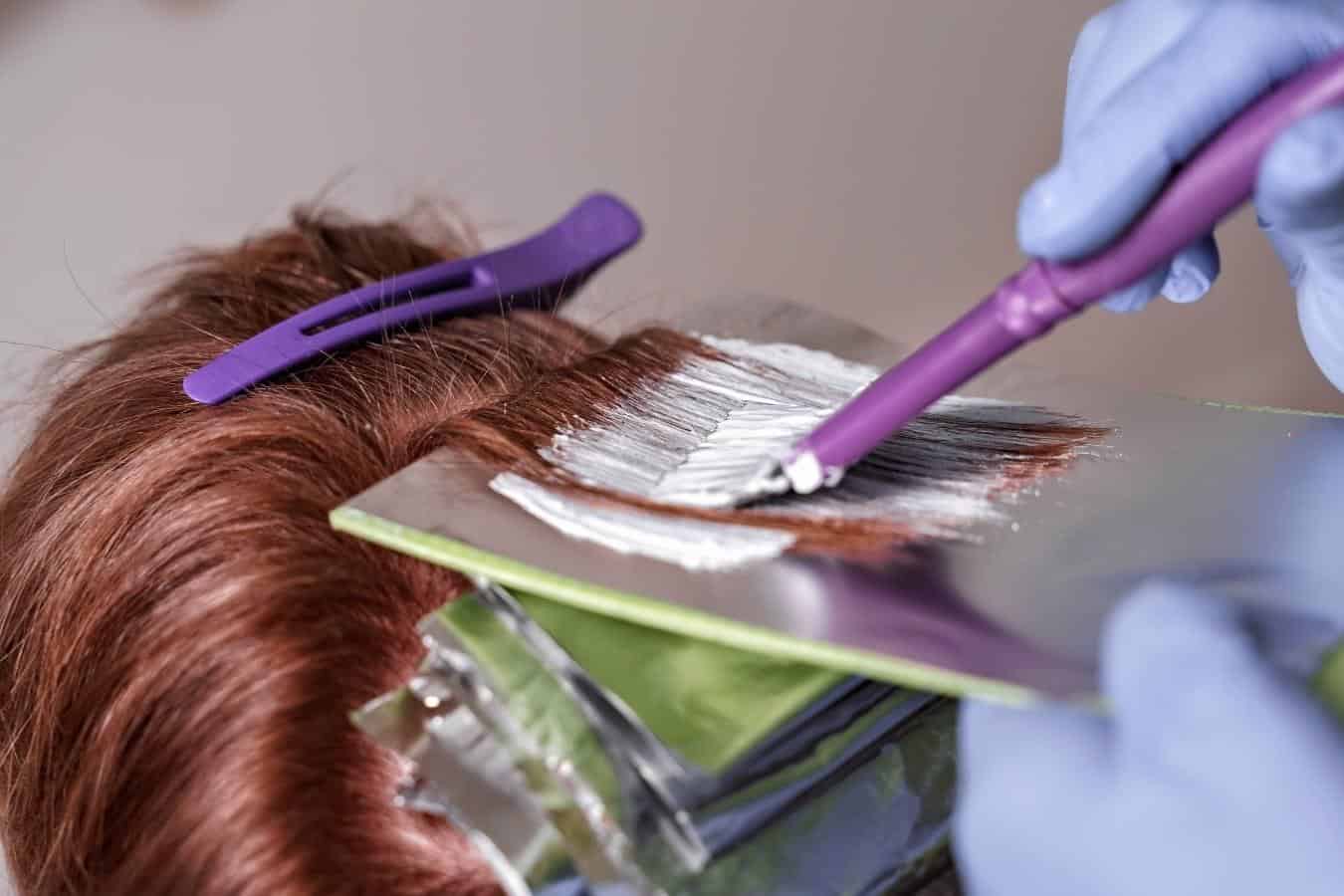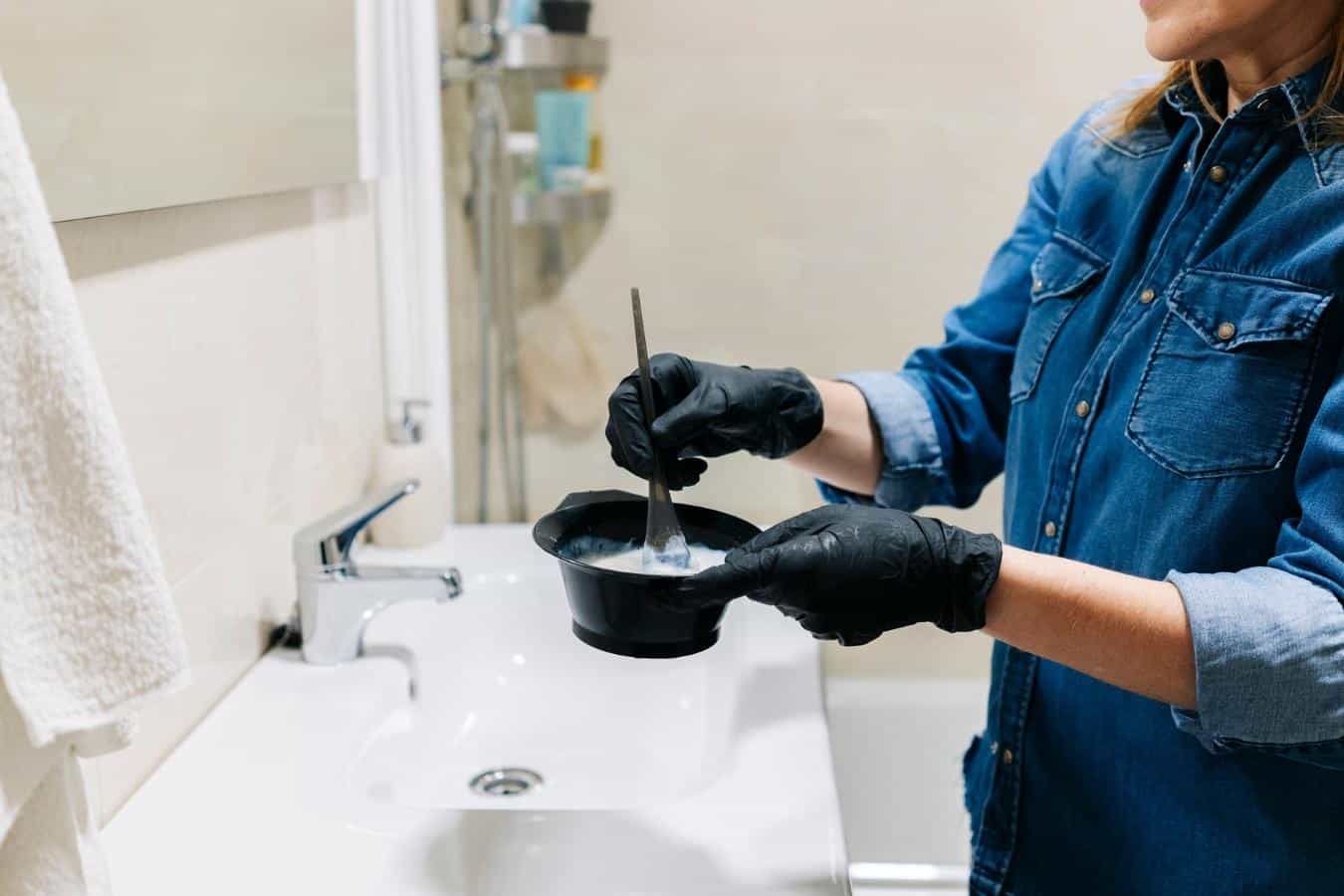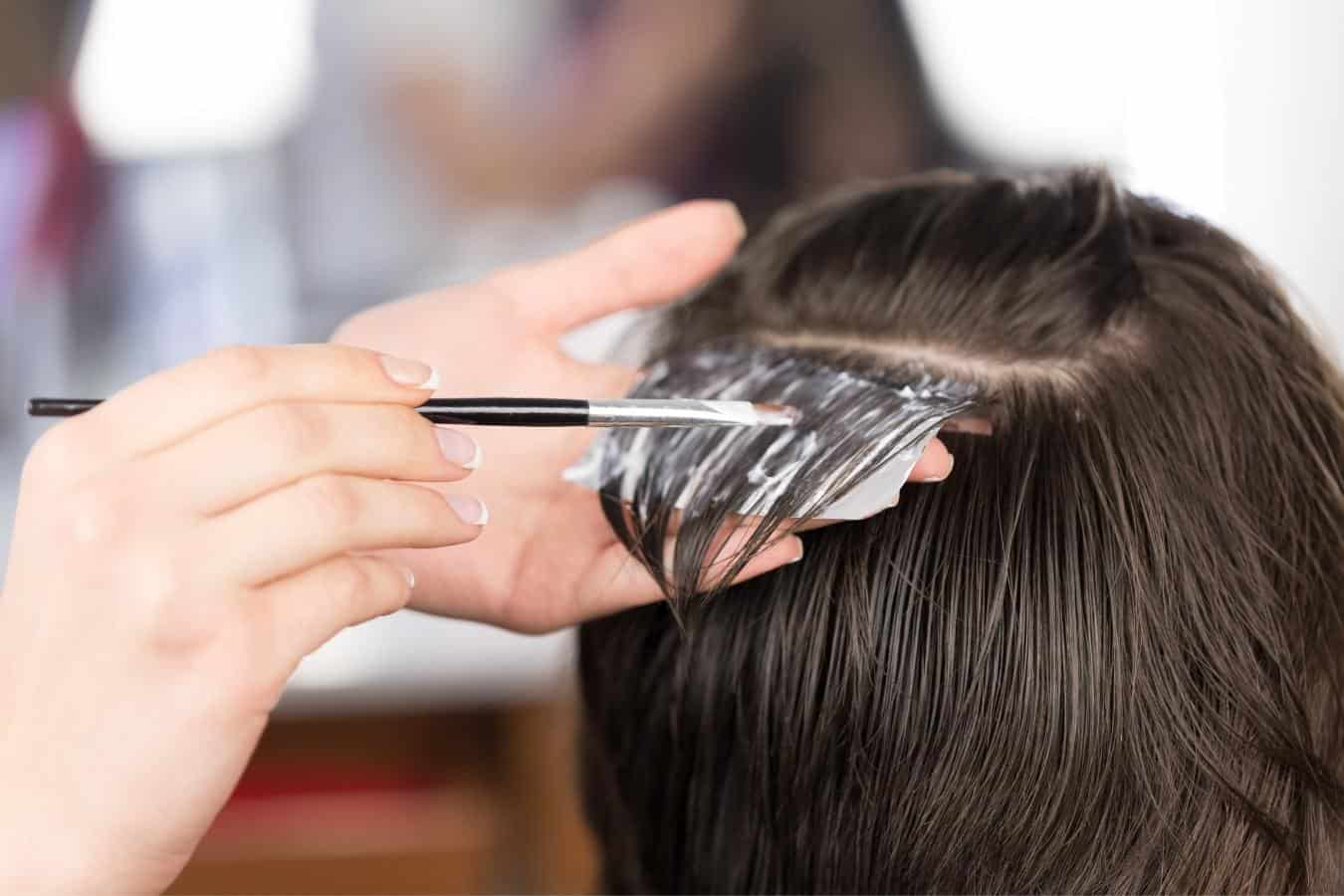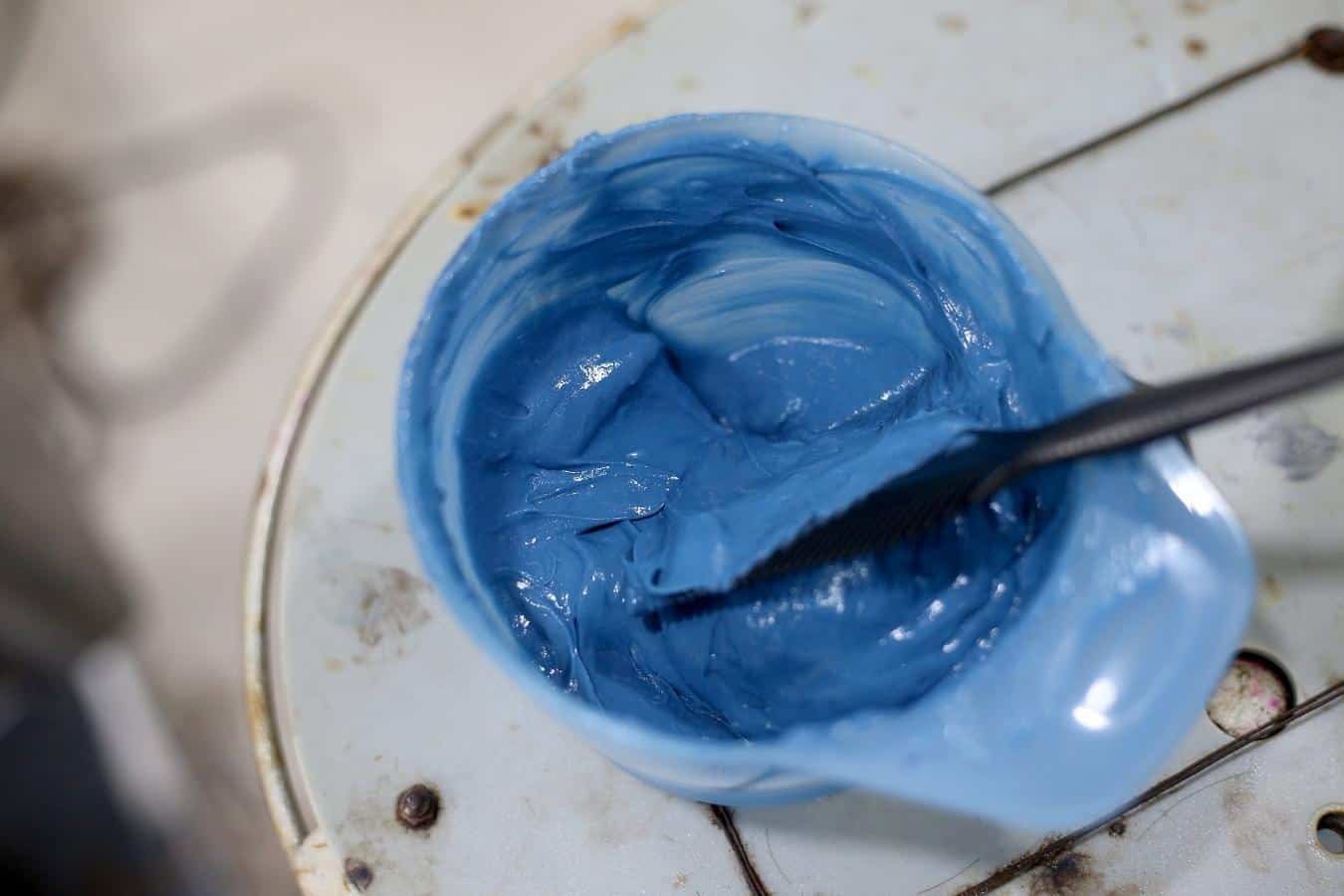If you’re looking to alter your hair color, you may be wondering if dye is better than bleach. The answer depends on what you want to achieve with your hair and what you’re willing to sacrifice in terms of hair health.

Bleach is the better option if you have dark hair that you want to lighten or dye to a new color with long-lasting results. On the other hand, hair dye is the better option if you want to do less damage to your hair and leave it with a shinier appearance. Overall, though, hair dye is safer and healthier.
Is Dye Better Than Bleach? An Overview
Most people generally agree that there are more cons than pros to bleaching your hair, especially when we compare it to hair dye on its own.
Keep in mind, though, that with some hair dye treatments (such as brown hair to purple hair, for example), you can’t avoid bleach if you want the color to stick and stand out.
Chemically, bleach and hair dye are somewhat different. Hair bleaching products typically contain ammonia and hydrogen peroxide, whereas hair dyes contain a combination of dye intermediates like paraphenylene-diamine (PPD) and ammonia.
Both hair-altering agents have some lasting negative effects on hair health and texture, but the effects of bleach tend to be more extreme and are harder to reverse.
Pros of Using Hair Dye

The pros of using hair dye as opposed to bleach include the following:
Less Damaging
One of the most obvious upsides to using bleach to lighten your hair, instead of blonde hair dye, for example, is that it’s less damaging.
Keep in mind that boxed hair dyes and permanent hair dyes are more extreme than temporary or semi-permanent hair dyes.
But in general, dyes do not have as severe of an effect when it comes to lifting the hair cuticle, which is essential in creating a protective barrier around your hair strands.
Easier to Change/Reverse
Hair dye generally lasts a long time (about 6 weeks for semi-permanent dye and about 8 months for permanent hair dye) before the fading starts. But this is a short period of time when you compare it to bleach’s truly permanent effect.
With dye alone, you can expect your hair to start shifting back to its normal color in a few months, at which point you can re-dye or even get the current dye lifted at a salon.
Lots of Possibilities
With bleach, you just have one general result – lightening of the hair and a yellowish color. But with hair dye, you could go from brunette to redhead, blonde to pink hair, or end up with any color of the rainbow.
Cons of Using Hair Dye

However, there are still problems you can run into with hair dye, as you’re still applying a chemical treatment to your hair, which will inevitably cause some damage.
It Costs More Than Bleach
In one sense, hair dye costs more than bleach when you compare products. An over-the-counter bottle of hair bleach, for example, starts around just $5-$10.
But hair dyes, when bought over the counter, start around $10 and can be as expensive as $20 or $30.
In a salon, these prices drastically increase, and if you haven’t bleached your hair before adding color, you’ll need to keep going back to the salon to pay for touch-ups every few months.
It Stains Your Skin
This is more of an inconvenience than anything, and you can take measures to avoid it, but hair dye will stain your skin (temporarily). Bleach won’t have this same effect.
It Won’t Last as Long
This point is a pro as well as a con because permanent results may just be what you’re striving for.
Hair dye will start to fade if you use it on its own instead of bleaching first, which means you’ll have to keep dying it or getting touch-ups to maintain the look.
Pros of Using Bleach on Hair
There aren’t a ton of pros to using bleach on your hair, other than the fact that bleaching will make it easier for hair dye to stick to your hair.
It Makes Hair Dye Last Longer
One huge pro of bleaching (in combo with hair dye) is that you can get sharper effects on dark hair.
If you’re a natural brunette, for example, and you want to go full purple, then you almost have to bleach before dyeing if you want the color to stick and stay.
Cons of Using Bleach on Hair

More Damage
Because bleach penetrates and lifts the cuticle so much means that you are causing extreme damage to your hair.
Studies have shown that it causes oxidative damage to hair fibers with substantial damage to the cuticle and cortex. This leaves your hair dry, unprotected from future damage, and brittle.
More Dangerous
Bleach is also more dangerous than hair dye to touch and breathe in.
Bleach is corrosive (enough to eat through metal), which means that it can damage your eyes and lungs and even cause breathing difficulty.
If it comes into contact with your skin, you could experience burning or irritation, especially scalp burns.
Final Thoughts – Is Dye Better Than Bleach?
So, is hair dye better than bleach? Hair dye and hair bleach both damage your hair, but bleach has longer-lasting and more severe effects on your hair and skin.
Although hair dye only lasts a few months before fading and tends to cost more, it’s the safer, healthier option.
Frequently Asked Questions (FAQ)
Bleached hair will be damaged and altered for a long time, and most people agree that it permanently changes the health of your hair.
The least damaging hair dyes will have the fewest chemicals and synthetic ingredients, such as henna hair dye or plant-based dyes with just a few additives.
Yes, semi-permanent dye is less damaging because it doesn’t actually break through to your hair cortex.
References
- https://www.acs.org/content/acs/en/molecule-of-the-week/archive/a/ammonia.html
- https://www.ncbi.nlm.nih.gov/pmc/articles/PMC4201279/
- https://pubmed.ncbi.nlm.nih.gov/30229956/
- https://www.functionofbeauty.com/blog/lightreads/hair-cuticle/
- https://pubmed.ncbi.nlm.nih.gov/29550112/
Disclaimer: This site is not intended to provide professional or medical advice. All of the content on LovedByCurls.com is for informational purposes only. All advice should be followed at your own discretion. Ingredients may change at any time so always check the product label before using. Check our full disclaimer policy here.
